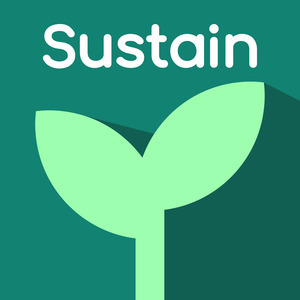Episode 275
Richard J. Acton on Research Software Sharing, Publication, & Distribution Checklists (RSSPDC)
June 27th, 2025
31 mins 3 secs
About this Episode
Guest
Richard J. Acton
Panelist
Richard Littauer
Show Notes
In this episode of Sustain, host Richard Littauer speaks with Richard J. Acton, a research data outputs manager at the Human Developmental Biology Initiative based near Cambridge. He discusses his involvement with open source software through bioinformatics and his development of a comprehensive checklist for researchers producing code. This checklist aims to guide researchers in making their software outputs more citable, reproducible, and user-friendly. The conversation delves into various themes covered by the checklist, such as source control, licensing, documentation, testing, and governance. He also shares his insights on the importance of open science and transparent research practices, the challenges of balancing open source work with academic demands, and the potential role of funders and publishers in supporting these efforts. Press download more to hear more!
[00:00:43] Richard Acton explains his job at the Human Developmental Biology Initiative and how the checklist started.
[00:01:23] He transitioned into open source via bioinformatics and Linux and advocates for open science and reproducibility in software.
[00:02:26] We learn why the checklist was created and the design and structure of the checklist.
[00:05:46] Richard Acton talks about lack and time and incentives prevent open sourcing and the how the checklist makes code more citable and boost academic recognition.
[00:09:17] There’s a discussion on the trade-off between citing a paper vs. citing the code.
[00:12:05] The tier system is mentioned and Richard Acton explains how the checklist encourages progression from bronze to platinum and goes over the key areas in the checklist categories.
[00:14:21] Governance and community is discussed with Richard Acton explaining that governance also includes continuity and community management is addressed especially for reusable pipelines.
[00:16:29] We hear about the three categories for research code: one-off code, web-based services, and reusable packages and how the definitions were tailored for the checklist.
[00:17:23] Richard Acton presented the checklist at the SSI workshop and he’s seeking contributors, reviewers, and testers.
[00:19:18] Richard Action advocates for publishers to enforce code quality and universities and funders can hire staff to ease researcher workload, and he speaks about transparency and quality assurance.
[00:24:59] Implementation and badging is discussed and he shares the grading is currently designed for self-assessment, but open to expert review in the future.
[00:26:33] Richard Acton is open to collaborating with CHAOSS and he aims to grow the project into a broader community standard.
[00:27:23] Find out where you can follow Richard Acton and his work on the web.
Quotes
[00:02:13] “Software being an integral part of modern research means that it needs to be open in order to be reproducible effectively.”
Spotlight
- [00:27:58] Richard’s spotlight is attending the Birds New Zealand annual conf.
- [00:28:55] Richard Acton’s spotlight is ‘rix: Reproducible Environments with Nix.’
Links
- podcast@sustainoss.org
- richard@sustainoss.org
- SustainOSS Discourse
- SustainOSS Mastodon
- SustainOSS Bluesky
- SustainOSS LinkedIn
- Open Collective-SustainOSS (Contribute)
- Richard Littauer Socials
- Richard J. Acton Website
- Richard J. Acton Mastodon
- Research Software Sharing, Publication, & Distribution Checklists
- Birds New Zealand
- rix: Reproducible Environments with Nix
Credits
Produced by Richard Littauer
Edited by Paul M. Bahr at Peachtree Sound
Show notes by DeAnn Bahr Peachtree Sound
